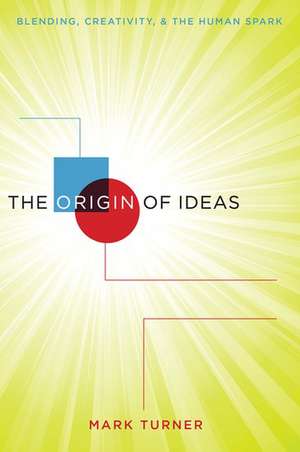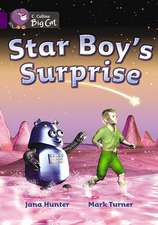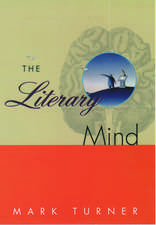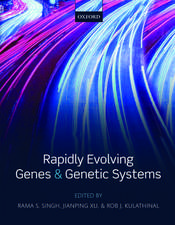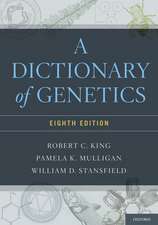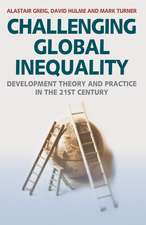The Origin of Ideas: Blending, Creativity, and the Human Spark
Autor Mark Turneren Limba Engleză Paperback – 20 aug 2015
Preț: 164.50 lei
Preț vechi: 177.82 lei
-7% Nou
Puncte Express: 247
Preț estimativ în valută:
31.48€ • 32.82$ • 26.16£
31.48€ • 32.82$ • 26.16£
Carte tipărită la comandă
Livrare economică 10-17 martie
Preluare comenzi: 021 569.72.76
Specificații
ISBN-13: 9780190263157
ISBN-10: 0190263156
Pagini: 320
Ilustrații: With illustrations
Dimensiuni: 231 x 155 x 25 mm
Greutate: 0.43 kg
Editura: Oxford University Press
Colecția OUP USA
Locul publicării:New York, United States
ISBN-10: 0190263156
Pagini: 320
Ilustrații: With illustrations
Dimensiuni: 231 x 155 x 25 mm
Greutate: 0.43 kg
Editura: Oxford University Press
Colecția OUP USA
Locul publicării:New York, United States
Recenzii
Turner makes a cogent and often colorfully argued case for blending's importance as crucial to the development of new ideas and imaginative works."
Turner probes the nature of creativity. He does apply 'blending' to such complex topics as 'self,' identity,' and 'theory of mind' in a reader-friendly style that encompasses neurobiology, cartoons, Picasso, and Winnie-the-Pooh. Recommended. All readers.
Mark Turner, in his new book The Origin of Ideas: Blending, Creativity, and the Human Spark, describes, in a wealth of fascinating detail, his view that humans are innovative and good at creative thinking due to the ability of our brains to blend two or more ideas and create a new idea. Only when evolution gave us brains with this new ability could we make vast cultural advances. . . . While The Origin of Ideas is not a simple book, and the concept of blending is much more sophisticated than it may seem initially, Turner leads the reader step by step, using familiar concepts to enhance understanding of those more complex. If you're intrigued by how creativity happens, this smoothly written volume should be in your collection.
Mark Turner should be named poet laureate of cognitive science. In The Origin of Ideas, Turner presents a cognitive science of creative thought using persuasive examples from areas such as cognitive linguistics and neuroscience. He argues how creative thinking, in the form of advanced conceptual blending, underlies human endeavors ranging from ancient sculpture to modern economics. In this manner, Turner profoundly describes a key step in the grand scope of human cognitive development-an achievement he carries out with sparkling clarity and inimitable panache.
Turner probes the nature of creativity. He does apply 'blending' to such complex topics as 'self,' identity,' and 'theory of mind' in a reader-friendly style that encompasses neurobiology, cartoons, Picasso, and Winnie-the-Pooh. Recommended. All readers.
Mark Turner, in his new book The Origin of Ideas: Blending, Creativity, and the Human Spark, describes, in a wealth of fascinating detail, his view that humans are innovative and good at creative thinking due to the ability of our brains to blend two or more ideas and create a new idea. Only when evolution gave us brains with this new ability could we make vast cultural advances. . . . While The Origin of Ideas is not a simple book, and the concept of blending is much more sophisticated than it may seem initially, Turner leads the reader step by step, using familiar concepts to enhance understanding of those more complex. If you're intrigued by how creativity happens, this smoothly written volume should be in your collection.
Mark Turner should be named poet laureate of cognitive science. In The Origin of Ideas, Turner presents a cognitive science of creative thought using persuasive examples from areas such as cognitive linguistics and neuroscience. He argues how creative thinking, in the form of advanced conceptual blending, underlies human endeavors ranging from ancient sculpture to modern economics. In this manner, Turner profoundly describes a key step in the grand scope of human cognitive development-an achievement he carries out with sparkling clarity and inimitable panache.
Notă biografică
Mark Turner, Ph.D., is Institute Professor and Professor of Cognitive Science at Case Western Reserve University. He is the founding director of the Cognitive Science Network and co-director of the Red Hen Lab. His most recent book publications are Ten Lectures on Mind and Language and two edited volumes, The Artful Mind: Cognitive Science and The Riddle of Human Creativity, from Oxford University Press, and Meaning, Form, & Body, edited with Fey Parrill and Vera Tobin, published by the Center for the Study of Language and Information. His other books and articles include Cognitive Dimensions of Social Science: The Way We Think about Politics, Economics, Law, and Society, The Literary Mind: The Origins of Thought and Language, Reading Minds: The Study of English in the Age of Cognitive Science, and Death is the Mother of Beauty.
